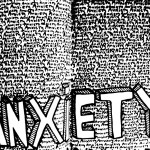
What Does Self Love Look Like?
I know. The idea of self-love doesn’t sit so well with our Western sensibilities.
But it hits on a topic that I’m eager to explore with you.
Recently, I had an experience around self-compassion and self-love that was kind of a revelation for me.
As a Mindfulness Meditation teacher, a lot of what I teach and share with people has to do with developing and nurturing self-compassion and loving-kindness. The Buddhist term for this is Maitri.
There are different ways that I feather Maitri into the teaching I do.
Self-Compassion Takes Work
But self-compassion is not a one-and-done type of thing. In my experience, you don’t just “get it” and then you’re good to go.
Self-compassion—or self friendliness as Pema Chodron likes to call it—takes work.
As with all good things, it takes time to realize the fruits.
And just like all our important relationships, it requires an investment. That’s even more true in our relationship with ourselves. Because that relationship is primary. It fundamentally influences all our other friendships.
This came into sharp relief for me recently.
Losing Touch With My Heart
The other day, I had a challenging interaction with a dear friend. Afterwards, I was beset with the whole range of emotions. I felt paranoid. I was angry. I was frustrated. I was at a loss.
But I could see that most of the feelings and inner narratives arising were directed outwards.
And I knew that I needed to stay with all of it because I felt disconnected from my heart and my deeper experience. That sweet spot that was going to help me metabolize the whole thing.
When Self-Compassion Is Absent
And then, as I was exercising, the penny dropped.
I saw the whole carousel of troubled feelings and narratives going round and round, and it suddenly occurred to me.
This is what it feels like when self-compassion is missing.
All my attention had been magnetized towards trying to fix something about what I was feeling. And rehashing the exchange in my head.
But then I just said to myself, “I love you. It’s OK, everything is OK. I love you and everything you’re feeling is fine.”
Can We Get A Little Love Over Here?
These words came straight from my heart. Instantly there were tears.
But these were tears of insight, release, and relief.
The insight being “Oh, I don’t need to fix or solve a goddamn thing, I just need to give myself a little love here, a little compassion. Everything else is a distraction. Everything else is secondary or not even real. You’re trying to solve something that doesn’t actually exist.”
The whole structure of outward projection suddenly became an object, and it was transparent to me. I was seeing it instead of being it.
What do I mean when I say it was an outward projection? I mean that when things like this happen, it can be hard to really stay with our own experience. The hurt, the pain, the vulnerability.
These are the wounds that, when untended and not attuned to, give rise to those familiar narratives of self-recrimination and blame.
As a result, we often look to our minds for an explanation or a rationale to help us make sense of it all. But more often than not, that means we’re stepping outside of and away from our moment to moment felt experience.
The place where the hurt and confusion actually live inside us…in our bodies and hearts.
The Logic of the Heart
As I’m learning over and over again, we can’t start healing until we start feeling.
So in that moment of self compassion everything became plain and simple in the comprehensive logic of the heart.
I saw it all as a structure. A cultural structure, a familial structure, a personal structure of self recrimination, self criticism, and the predictable result of an achievement-oriented culture focused on perfection and presentation.
What a relief to see through it. To return home to myself.
I don’t know about you, but I can say for myself that these patterns and narratives that obscure self compassion and self-love run deep. We learned them a long long time ago.
Self-Love Takes Work
And we have to really work at loving ourselves.
I appreciate that to our Western sensibilities, that sounds self-involved, self-indulgent, and narcissistic. But I’m starting to see how that’s a gross misinterpretation of what we’re talking about.
What I’m talking about is insight and integrity of self and soul.
It means that we’re not divided against ourselves. That our energy, our spirits, our hearts, and our minds are not divided and dis-integrated as we move through the world.
For me, this is opening up a fresh and deeper understanding of self compassion, and I’m grateful for it.
Engaging Heaven And Earth
I’ve been meditating for 29 years and a lot of that was spent in the singular pursuit of transcendent experiences. I had a lot of those, and they were amazing.
But it’s clear to me that no amount of sitting in the blissful lap of God will help us deal with the reality of our earthly selves.
In my experience, those experiences don’t actually help us compost our deeply ingrained cultural patterns of perfectionism and all the untended wounds we shelter within the shadows of our soul.
And they won’t help us bring a tender touch to our own hearts and help us attune to what we really need in any given moment.
In an ideal world, we are engaging both Heaven AND Earth in our meditation practice. Why? Because we’re made from a bit of both.
As I understand it, one key function of our daily practice is that it serves as an engine and a container to help us metabolize pain, heartbreak, and frustration.
In the process, we not only get to know ourselves more deeply. We also make deep healing contact with our own wounded hearts.
But that’s not all.
Meditation is also the place where we can finally let go of everything—all our desires, worries, cares, concerns, neuroses, and obsessions—and discover that we can fly.
And by the way, yes, I did resolve things with my dear friend. I just had to resolve things with myself first.


